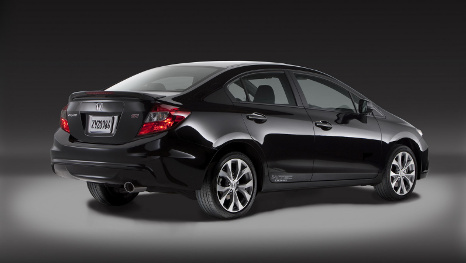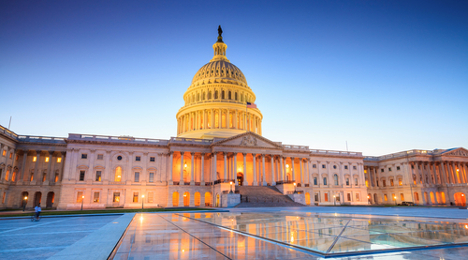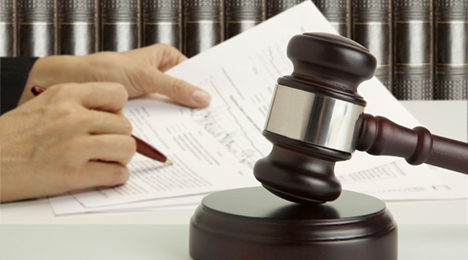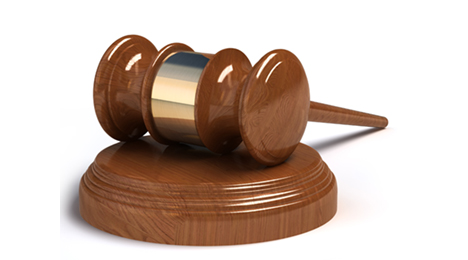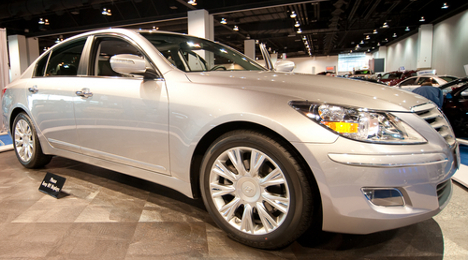Used-car dealers won’t have to worry about a federal requirement of bearing the burden of fixing recalls before being allowed to resell used vehicles. At least, for now.
This is in light of a Senate Committee on Commerce, Science, and Transportation mark-up meeting on Wednesday that voted on several legislative actions attempting to alter operations in various areas of the United States’ transportation sector, including highway, rail and port-related issues.
While many areas of transportation in the U.S. will be affected, the key takeaways for used-car dealers are as follows.
The committee passed S. 1732, a multi-year transportation bill including multiple amendments that the committee says offers critical regulatory and consumer protection reforms. As we reported a few days ago, the Republican-driven bill will directly affect franchised dealers and car rental companies by requiring them to provide consumers with notification of open safety recalls.
The Democratic amendment proposed by senators Ed Markey (Massachusetts), Bill Nelson (Florida) and Richard Blumenthal (Connecticut) that would require used-car dealers to repair recalled vehicles prior to their resale was shot down by the committee.
That same amendment would have also required dealers to check for and fix safety defects subject to open recalls, with customer permission, when such vehicles were taken in for routine maintenance. Per the specific wording of the amendment, the auctioning of used-vehicles would be exempt from repair requirements.
Sen. John Thune, the Republican senator from South Dakota and chairman of the committee that sponsored the bill that passed showed his hesitations toward the Democrat-sponsored amendment that would specifically require used-vehicles to be repaired prior to their sale by a dealer.
“Just let me say in response that requiring used-car dealers to remedy any open recall prior to sale could have unintended consequences, negative consequences, for consumers in the used-car market,” Thune said. “Cars would sit on used-car lots for potentially long stretches of time before the used-car dealers could get them repaired as used-car dealers would not be a recall-repair priority for franchised dealers.
“Used-car dealers would also likely be reluctant to accept trade-ins or otherwise purchase cars from consumers with open recalls even from minor defects because they would have to repair the car before it could be resold. I appreciate the intent of this amendment, and I’m open to continuing to work on the issue, but I don’t think we have addressed the potential implementation issues so I’m going to vote no at this time and would urge my colleagues to do the same.”
Washington-state Democrat Sen. Maria Cantwell spoke in defense of the legislation, bringing into the conversation the lives that have been lost due to used vehicles sold with unrepaired recalls.
“New-car dealers cannot sell vehicles under recall, but used-car dealers can,” Cantwell said. “So this presents a real danger to the public. In fact, several individuals who died from exploding Takata airbags purchased used cars that hadn’t been fixed. So consumer safety requires corporate accountability — this would also have accountability from third-party vendors, and I think this amendment would help achieve that.”
At the closing of the mark-up session, Blumenthal addressed Thune and lightly expressed his dissatisfaction with the speed of the processes involved with various issues related to the various amendments he tried to get passed.
“Thanks Mr. Chairman. I want to join in thanking for adopting the measures that you did and express the hope that we can reach agreement on some more,” Blumenthal said. “I think that there is always a tendency to articulate what happens here as overly simplistic terms. Essentially I think that we’ve taken some steps, they strike me as baby steps, in the right directions when we should be making giant strides given the absolutely gut-wrenching, heartbreaking stories we’ve heard in this very room about the real-life consequences of safety lapses and gaps in our present laws. I’m hoping we can correct some of them. Thank you.”
Four industry associations all raised various concerns on Tuesday about the consent order released by the Consumer Financial Protection Bureau and Department of Justice involving American Honda Finance Corp.
To recap, along with paying $24 million in restitution, Honda’s captive is being instructed to restrict dealer markup to 125 basis points or lower, depending on the length of the vehicle installment contract.
Leaders of the National Automobile Dealers Association (NADA), the National Association of Minority Automobile Dealers (NAMAD) and the American International Automobile Dealers Association (AIADA) all chimed in through a statement sent to Cherokee Media Group’s Auto Remarketing and SubPrime Auto Finance News.
“Today’s government-imposed order will hamstring the ability of thousands of consumers to negotiate lower interest rates with their local auto dealership,” NADA chairman Bill Fox said.
“This enforcement action artificially constrains the right of consumers to benefit from interest rate reductions of up to 1 percent of the APR on their next auto loan," Fox continued.
NAMAD president Damon Lester emphasized the prospects potential buyers should expect when entering the showroom.
“Every person deserves to be treated honestly and fairly when purchasing and financing their next car or truck — no exceptions and no excuses,” Lester said.
“Today’s restriction of consumer rights is entirely unnecessary because a better alternative exists — the Fair Credit Compliance Policy & Program recommended by our associations,” Lester continued. “That alternative, which is modeled on prior Department of Justice consent orders, fully addresses fair credit concerns without displacing the ability of consumers to obtain discounted rates.”
AIADA chairman Brad Hoffman cautioned about the ramifications of Tuesday’s development.
“There’s no getting around the fact that this enforcement action is going to reduce the savings consumers depend on when financing a new vehicle,” Hoffman said.
“Everyone in our industry is mystified as to why the government continues to overlook its own common-sense approach in favor of the anti-consumer methods forced on Honda Finance,” Hoffman went on to say.
Chris Stinebert, president and chief executive officer American Financial Services Association, took a different approach when assessing what the CFPB and DOJ released.
“While AFSA does not comment on the specific details of individual consent orders or business practices, the association remains concerned that the Consumer Financial Protection Bureau has not made any adjustments to the flawed methodology it uses for alleging consumer harm,” Stinebert said in a statement.
“The association and its members remain dedicated to treating all consumers honestly and fairly, and ensuring they have access to affordable credit,” he continued. “AFSA believes that consumers deserve the right to negotiate the best deal when financing a vehicle.”
ACA International, the association of credit and collection professionals, filed a lawsuit on Monday in the United States Court of Appeals for the D.C. Circuit seeking judicial review of the Federal Communications Commission’s declaratory ruling and order adopted June 18 on the Telephone Consumer Protection Act.
The official ruling was released last Friday.
The FCC’s regulatory action responded to a January 2014 petition filed by ACA International, which asked the FCC to clarify the long-standing uncertainty about the law’s application and enforcement, which has caused legitimate businesses attempting to follow the law to be vulnerable to predatory lawsuits.
ACA International’s suit seeks judicial review of the FCC’s ruling, and determination whether the FCC exercised its regulatory authority appropriately or if the agency has ignored a controlling statute in order to expand the scope and reach of the TCPA in a way that Congress never intended.
While ACA International vigorously opposes the abusive telemarketing activities that the TCPA seeks to curtail, the FCC’s ruling goes several steps in the wrong direction and amounts to an attempt to expand its own power and sidestep Congress.
“With its ruling, the FCC has gotten it wrong and has overstepped its bounds,” ACA International chief executive officer Patrick Morris said.
“The FCC’s ruling is at odds with the plain language of the TCPA, the original intent of Congress, and common sense,” Morris continued. “Unfortunately, ACA must now turn to the courts in order to challenge the FCC’s attempt to expand its own power and sidestep Congress.”
When Congress passed the TCPA in 1991, lawmakers stated explicitly in that statute that “individuals’ privacy rights, public safety interests, and commercial freedoms of speech and trade must be balanced in a way that protects the privacy of individuals and permits legitimate telemarketing practices.”
ACA International contends Congress thus expressed a “clear intent not to create a regulatory environment so complicated that it lumps legitimate, compliant, law-abiding businesses in with the abusive and intrusive callers the statute was intended to regulate.”
Background of FCC’s previous decision
As ACA International referenced, the FCC back in June adopted a proposal that the regulator indicated is meant to protect consumers against unwanted robocalls and spam texts.
In a package of declaratory rulings, the FCC affirmed consumers’ rights to control the calls they receive. As part of this package, the commission also made clear that telephone companies face no legal barriers to allowing consumers to choose to use robocall-blocking technology.
Officials explained the rulings were informed by thousands of consumer complaints about robocalls the FCC receives each month. Complaints related to unwanted calls are the largest category of complaints received by the commission, numbering more than 215,000 in 2014.
The FCC pointed out the action addressed almost two dozen petitions and other requests that sought clarity on how the commission interprets the TCPA, closing “loopholes” and strengthening consumer protections already on the books.
The TCPA requires prior express consent for non-emergency autodialed, prerecorded, or artificial voice calls to wireless phone numbers, as well as for prerecorded telemarketing calls to residential wireline numbers.
The FCC emphasized the rulings provide much needed clarity for consumers and businesses. Highlights for consumers who use either landline or wireless phones include:
— Green light for ‘do not disturb’ technology: Service providers can offer robocall-blocking technologies to consumers and implement market-based solutions that consumers can use to stop unwanted robocalls.
— Empowering consumers to say ‘stop:’ Consumers have the right to revoke their consent to receive robocalls and robotexts in any reasonable way at any time.
— Reassigned numbers aren’t loopholes: If a phone number has been reassigned, companies must stop calling the number after one call.
— Third-party consent: A consumer whose name is in the contacts list of an acquaintance’s phone does not consent to receive robocalls from third-party applications downloaded by the acquaintance.
Additional highlights for wireless consumers include:
— Affirming the law’s definition of autodialer: Officials said autodialer is defined in the act as any technology with the capacity to dial random or sequential numbers. This definition ensures that robocallers cannot skirt consumer consent requirements through changes in calling technology design or by calling from a list of numbers.
— Text messages as calls: The Commission reaffirmed that consumers are entitled to the same consent-based protections for texts as they are for voice calls to wireless numbers.
— Internet-to-phone text messages: Equipment used to send Internet-to-phone text messages is an autodialer, so the caller must have consumer consent before calling.
An upcoming mark-up of a proposed Republican transportation bill featuring regulatory and consumer protection reforms, which may contain several provisions that could directly impact dealers, is scheduled for Wednesday morning. And several industry sources have already offered their thoughts on this measure (more on that below).
Update: check out some of the ramifications for used-car dealers decided upon at Wednesday's mark-up meeting here.
First, the basics.
South Dakota Republican Sen. John Thune, the chairman of the Senate Committee on Commerce, Science and Transportation, announced Thursday that the committee will convene Wednesday to consider and vote on S. 1732, the Comprehensive Transportation and Consumer Protection Act of 2015, which is sponsored by Thune and two other Republican senators: Surface Subcommittee chairman Deb Fischer, from Nebraska, and Consumer Protection Subcommittee chairman Jerry Moran, from Kansas.
The Republican transportation bill is fairly broad, affecting several areas including highway, rail and port-related provisions. Some of the most pertinent provisions of the bill for dealers, according to summaries provided by the Senate Committee, are included in the following excerpt:
Vehicle Recalls
Improves consumer awareness of vehicle safety information and requires franchised dealers and car rental companies to provide consumers with notification of open safety recalls. Increases the time consumers have to seek a free remedy for tire recalls and creates a state pilot grant to inform consumers of open vehicle recalls at the time of motor vehicle registration.
Provides Increased Oversight of NHTSA
Following a record number of recalls for defects linked to fatalities, high profile failures by the auto safety regulator and expert testimony that the most immediate needs are to fix fundamental problem of NHTSA’s defect identification and investigation process and not substantial increased funding, the bill requires the DOT Inspector General and NHTSA to provide updates on how NHTSA is addressing these problems and directs audits of NHTSA’s management of vehicle safety recalls, public awareness of recall information, and NHTSA’s research efforts.
Promoting Crash Avoidance Technology
Adds a requirement that crash avoidance information, such as active braking and lane-tracking technology, be included next to the 5-star information on the car sticker for consumers purchasing new vehicles.
(This chunk of summary, provided by the committee, is by no means exhaustive — read the full summary of the provisions here.)
The Republicans aren’t alone in their aims to make changes to how recalls and other such defects are handled. Democratic Party senator Ed Markey, of Massachusetts, also made an announcement on Thursday regarding his sponsorship, along with two other Democrats on the Senate Commerce Committee, of “sweeping auto safety legislation” that was filed in the senate that day.
Along with senators Bill Nelson, of Florida, and Richard Blumenthal, of Connecticut, the trio, in part prompted by their committee’s investigations into issues such as faulty GM ignition switches and defective Takata airbags, seek to make even deeper-impacting changes on legislation involving how recalls and defects are handled. Two key provisions in the proposed legislation that may directly impact dealers in the used-vehicle market include the following, according to a release from Sen. Markey:
Sec. 205. Used passenger motor vehicle consumer protection.
Section 205 prohibits the sale or lease of a used vehicle that has an unrepaired safety defect or does not comply with an applicable motor vehicle safety standard. The prohibition does not apply to circumstances where recall information is not available or accessible at the time the vehicle is sold or leased.
Sec. 402. Dealer requirement to check for and remedy recall.
Section 402 requires authorized dealers to check for and fix safety defects subject to open recalls when consumers take their cars in for routine maintenance.
(To see the full summary of provisions, click here.)
Curious about how this may affect dealers, Auto Remarketing reached out to several in the business to see how they feel these pieces of legislation may impact the industry.
Shaun Petersen, the legislative and regulatory counsel for the National Independent Automobile Dealers Association, shared some of his advice with AR about how he expects Markey and his fellow Democrats to try to get their portion of legislation passed.
“And just by the way of background, my guess is, I think Sen. Markey kind of alludes to it, that the provisions in their bill, they’re going to try to get marked up and put into the Republican bill,” Petersen said. “Because, obviously, the Republicans control the Senate, and Sen. Thune is the committee chair. That would be the vehicle for moving it, any legislation, if anything does move.”
Petersen also says we’ll have to see what sort of verbiage is used to draw out the Democratic bill, which refers to “authorized dealers” but, in his best guess, will end up targeting franchised dealers.
“Without having seen that specific language in the Markey bill … there’s a similar provision in the Republican bill that is applicable to franchise dealers, and our guys wouldn’t be affected by that because we aren’t obviously ‘authorized dealers,’” Petersen said. “Which is what I’m assuming the language that Markey’s bill will have to make it clear that it’s talking about (for example) the Chevy dealer servicing a Chevy car and checking the Chevy system to see if there’s any recalls.”
Independent dealers will have to wait to see how they may be affected. Regardless, Petersen says they will still need to utilize their franchised dealership connections to have repairs made to vehicles with safety recalls.
“We would absolutely have to,” Petersen said. “Certainly on the Republican bill, and then what I’m assuming is going to come out of the Markey bill, that element is not going to change. We’re beholden to somebody else to fix these vehicles for us, and certainly we want to make sure our customers are aware of information pertaining to recalls.
“And we, as a best practice, are going to advise dealers to get them fixed if they can and use that as a best practice and make sure that they’re staying in communication with their customers and disclosing recalls, particularly with those that can’t be fixed.”
When reaching out to others in the industry regarding these legislative acts, a representative from the NADA provided Auto Remarketing the following statement on behalf of the association.
“The National Automobile Dealers Association is a strong supporter of data-driven efforts to improve recall completion rates, and believes that legislative or regulatory proposals should avoid unnecessarily raising costs for consumers or unfairly punishing small businesses. The overwhelming majority of recalls involve issues that do not warrant the drastic step of grounding, which is why NADA continues to work with policymakers and regulators to identify the most effective, most efficient and most consumer-friendly way to increase the nation’s recall-repair rate.”
Another industry resource, vAuto's Dale Pollak, was quite clear with his dissatisfaction with the dealer-facing provisions of the legislation.
“The responsibility of checking and remedying open recalls for all used vehicles prior to sale is an excessive and unreasonable burden to dealers,” Pollak said. “This is because dealers frequently do not possess the resources, expertise and/or parts to make the necessary repairs. Moreover, this situation is exacerbated in light of the fact that dealers cannot practically refuse trade-ins on the purchase of new vehicles.
“These trades represent a significant portion of the customer’s payment, and therefore, the receiving dealer must have the ability to turn the trade quickly in order to convert the asset to cash,” Pollak continued. “The inability to do so as a result of the proposed legislation will likely deny all dealers the necessary capital to sustain operations.”
Pollak offered his own advice to the policymakers.
“A more reasonable alternative would be for dealers to identify open recalls and prominently post notice thereof on all affected vehicles,” Pollak said. “This would allow consumers the opportunity to make informed choices and would facilitate more efficient recall remediation.”
Dealers – what are your thoughts? How do you feel the proposed legislation may positively or negatively affect your business and your customers? Any suggestions? Let us know in the comments or via one of our other social media outlets linked at the bottom of the page.
An Oklahoma-based law firm announced the filing of a securities class action lawsuit against TrueCar in U.S. District Court.
On Friday, Federman & Sherwood announced that the complaint was filed Wednesday in the United States District Court for the Central District of California.
In its news release, the law firm said: “The complaint alleges violations of federal securities laws under the Securities Exchange Act of 1934, including allegations of issuing a series of material or false misrepresentations to the market which had the effect of artificially inflating the market price during the Class Period, which is May 16, 2014 through May 20, 2015.
“More specifically, this litigation was filed because the Company made false and/or misleading statements and/or failed to disclose that: (i) TrueCar’s business practices violated unfair competition and deceptive trade practice laws; (ii) TrueCar acts as a dealer and broker in car sales transactions without proper licensing, in violation of various States’ laws that govern car sales; and (iii) as a result of the above, the Company’s financial statements were materially false and misleading at all relevant times,” it continued.
The news release goes on to note two other separate actions filed against the company this year, referencing a complaint filed by an auto dealer law firm in the Federal Court for the Southern District of New York in March and legal action in May taken by the California New Car Dealers Association for what the association claims are violations of sections of the California Vehicle Code governing dealer licensing, brokering, advertising and disclosure.
“On March 9, 2015, a complaint was filed in Federal Court against TrueCar alleging that car dealers were injured by the Company’s business practices which violated unfair competition and deceptive trade practice laws,” the law firm explains. “Another lawsuit was filed on May 20, 2015 against TrueCar alleging that TrueCar violates various laws that govern car sales in the State of California including claims that TrueCar acts as a dealer and broker in car sales transactions without proper licensing. On the news, shares of TrueCar declined to close at $13.99.”
The statement adds: “Plaintiff seeks to recover damages on behalf of all TrueCar, Inc. shareholders who purchased common stock during the Class Period and are therefore a member of the Class as described above.”
TrueCar released a statement Thursday on the matter, prior to Federman & Sherwood’s news release Friday but after the filing on Wednesday.
The company said it plans to “vigorously defend against the claims made in a putative securities class action lawsuit filed yesterday against the company and two of its officers in the United States District Court for the Central District of California.”
TrueCar said: “The complaint is based, in large part, on allegations in two separate lawsuits that the company is currently defending in other forums. TrueCar’s management team has reviewed the complaint, and believes the allegations are meritless,” the company said.
TrueCar chief risk officer Johnny Stephenson added: “Disruptive technology and business models like Uber, Airbnb, and now TrueCar, have been challenged on many fronts, including legal. It is an unfortunate and unavoidable byproduct of innovation, but it will not distract our focus away from developing products and services that improve the car-buying experience for consumers and our nearly 11,000 Dealer Partners.”
TrueCar is facing more litigation, this time in the Golden State.
The legal action against the company was filed by the California New Car Dealers Association for what the association claims are violations of sections of the California Vehicle Code governing dealer licensing, brokering, advertising and disclosure.
News of the suit was reported in several news reports Wednesday afternoon, including the The Wall Street Journal, Auto Dealer Monthly and Automotive News, and later confirmed by Auto Remarketing.
In a statement, CNCDA said the suit — which was filed in the Los Angeles Superior Court Santa Monica branch — asks the court to mandate TrueCar comply with the aforementioned laws it alleges the company is breaking. TrueCar said in a statement released Wednesday that it is aware of the action and is "confident it can demonstrate the compliance of our business model with California law."
CNCDA alleges TrueCar is "violating key statutes and because of this, both the consumer and new car dealers are not being protected."
The association added: "Based on its conduct, TrueCar acts as a 'Dealer' and a 'Broker,' we believe TrueCar is in violation of existing consumer protection laws, as TrueCar does not have a Dealer or Auto Broker license."
Patricia Glaser of Glaser Weil, lead counsel on the case, filed the action.
"We will fight what we believe is this lack of transparency in the courts because it is clear to us and should be now clear to consumers that laws are being broken," said CNCDA president Brian Maas.
More from TrueCar Statement
TrueCar said in its statement that it, "has always been committed to improving the car-buying experience for all participants, including consumers, dealers and manufacturers."
It continued: "We are aware that a lawsuit was filed on behalf of the California New Car Dealers Association ("CNCDA"), a trade association that seeks a declaration from the Los Angeles Superior Court as to whether TrueCar qualifies as a dealer or autobroker under California law. To be clear, the complaint does not affirmatively seek any monetary relief from TrueCar, our network of Certified Dealer partners, or anyone else."
The company continued: "TrueCar is confident it can demonstrate the compliance of our business model with California law. We fail to understand how the CNCDA believes that it is serving the interests of its members by seeking a declaration that approximately half of those members are violating California law through their relationships with TrueCar.
"It is telling that the lawsuit was filed by a trade association and not by any actual California dealers, consumers, or governmental agency charged with the responsibility for enforcing the very laws that are at issue in the lawsuit. We believe the reason is simple: TrueCar operates in compliance with California law," its statement said.
"TrueCar has invested a tremendous amount of resources to ensure its compliance with all applicable laws, including specifically the laws at issue in this litigation. TrueCar has always proactively maintained an open dialogue with the regulators charged with the oversight of these laws in order to answer any questions regulators may have regarding TrueCar’s operations and the compliance of those operations with applicable law. These regulators understand our business model and have taken no enforcement action against us since we began operating in California in 2005," the statement continued.
"The California Legislative Counsel Bureau has previously considered whether a web-based service that operates in the same manner as TrueCar constitutes an autobroker under California law. Contrary to the allegations in the CNCDA’s complaint, the Legislative Counsel Bureau concluded that the operation of such a service ‘does not constitute autobrokering’ and the operator of the service ‘is not a dealer’ within the meaning of applicable law," the statement adds.
"As recently as October 2014, TrueCar met with representatives of the California Department of Motor Vehicles, which is the regulatory body charged with enforcement of the statutes at-issue in the CNCDA’s complaint. After analyzing TrueCar’s business operations in depth, including specifically those challenged by this lawsuit, the DMV did not request that TrueCar make any changes to its California business operations," it added. "In short, we are proud of the service that we deliver to our users, participating dealers, affinity partners, and manufacturers. If this lawsuit is allowed to proceed we welcome the opportunity to address the issues raised and we expect to be fully vindicated."
An auto dealer law firm filed a mass action lawsuit on Tuesday against TrueCar in the Federal Court for the Southern District of New York, a suit the firm says includes 117 dealerships.
Bellavia Blatt & Crossett, PC, said in its statement that it is planning to file a second suit, on behalf of TrueCar-affiliated dealers, in the near future.
The suit the firm filed Monday alleges TrueCar “engaged in deceptive business practices,” leading to anywhere from about 35 to 85 sales a year for these stores, Bellavia Blatt said in the statement.
The firm also claims that “TrueCar's actions have led to the reputations of TrueCar-affiliated dealerships being damaged by the public's perception of the TrueCar business model and its alleged deceptive business practices.”
The firm seeks damages of $250 million plus “injunctive relief compelling TrueCar to change its business model.”
Responding to an emailed request from Auto Remarketing, TrueCar offered the following official comment: “We are aware that a complaint has been filed on behalf of a group of dealers who are not on the TrueCar program. We believe the complaint is without merit. We will vigorously defend the lawsuit and our business practices and we expect to be fully vindicated.”
The National Highway Traffic Safety Administration will be examined in a Senate subcommittee hearing next week.
Announced this week by the U.S. Senate Committee on Commerce, Science, and Transportation, the Subcommittee on Consumer Protection, Product Safety, and Insurance will host the hearing on Tuesday at 2:30 p.m. EST.
The hearing, titled “Oversight of and Policy Considerations for the National Highway Traffic Safety Administration,” according to a Senate press release, will “examine the implementation of the Moving Ahead for Progress in the 21st Century Act or MAP-21, as well as assess the efficacy and needs of NHTSA’s vehicle safety authority and its administration of highway safety programs.”
The subcommittee, chaired by Sen. Clair McCaskill, is expected to discuss the future of the NHTSA and how it handled the complaints for General Motors’ ignition switch issues.
The Senate’s subcommittee hearing will be webcast live via the Senate Commerce Committee website; refreshing the site within the 10 minutes prior to commencement will ensure the webcast will begin to stream live automatically. Those with a disability should contact Stephanie Gamache at (202) 224-5511 by Sept. 11 to arrange an auxiliary aid or service, such as closed captioning.
The National Automobile Dealers Association included a reminder in its NADA Headlines e-newsletter on Tuesday to prompt dealers to take note of the impending increase in the registration fee for the National Do Not Call Registry. The Federal Trade Commission announced that the annual registration fee, which is currently $59 per area code of data, will increase to $60 per area code effective Oct. 1.
The maximum that any single entity will be charged has been increased from $16,228 to $16,482. Dealers accessing five or fewer area code listings can do so for free but will still need to register with the FTC. Dealerships that register more than five area codes will pay the revised fee when renewing their current subscriptions.
For more information, visit the Federal Trade Commission’s website here. Another summary of the fee’s increase can be read here.
Hyundai Motor America announced recently that it has resolved a situation with the National Highway Traffic Safety Administration regarding the 2013 recall of certain Genesis sedans with brake fluid issues.
NHTSA inquired about the recall, which affected approximately 43,500 Genesis sedans in the 2009-2012 model range, regarding the timeliness of reporting the issue. The company will pay $17.35 million in civil penalties as part of settling the agreement.
David Zuchowski, the president and chief executive officer of Hyundai America, says the company has gone to work to prevent this from happening again.
“In order to mitigate a situation like this in the future, Hyundai is instituting new organizational and process improvements,” Zuchowski said, “and enhancing the ability of the U.S. leadership team to readily respond to regulatory reporting requirements.”
Hyundai had issued a Technical Service Bulletin to its dealers to replace brake fluid in the affected vehicles but did not file a safety recall until after the NHTSA had already opened an investigation. The company says there have been no reported fatalities or serious injuries due to the issue and that the majority of the affected Genesis vehicles have been repaired.
“Hyundai remains committed to making safety our top priority,” Zuchowski said, “and is dedicated to ensuring immediate action in response to potential safety concerns including the prompt reporting of safety defects.”
In Other Recall News
GM announced Thursday its updated year-to-date recall numbers along with four new recalls.
U.S. Total: 25,754,356
GMNA Total: 29,079,765
Aug. 7 Recalls:
—202,115 certain 2002-04 Saturn VUEs vehicles
—48,059 certain 2013 Cadillac ATS & Buick Encore vehicles
—14,940 certain 2014-15 Chevrolet Impala vehicles
—1,968 certain 2009-10 Chevrolet Aveo & 2009 Pontiac G3 vehicles
—1,919 certain 2014 Chevrolet Spark vehicles
For a comprehensive look at the current year-to-date GM recalls, click here.


